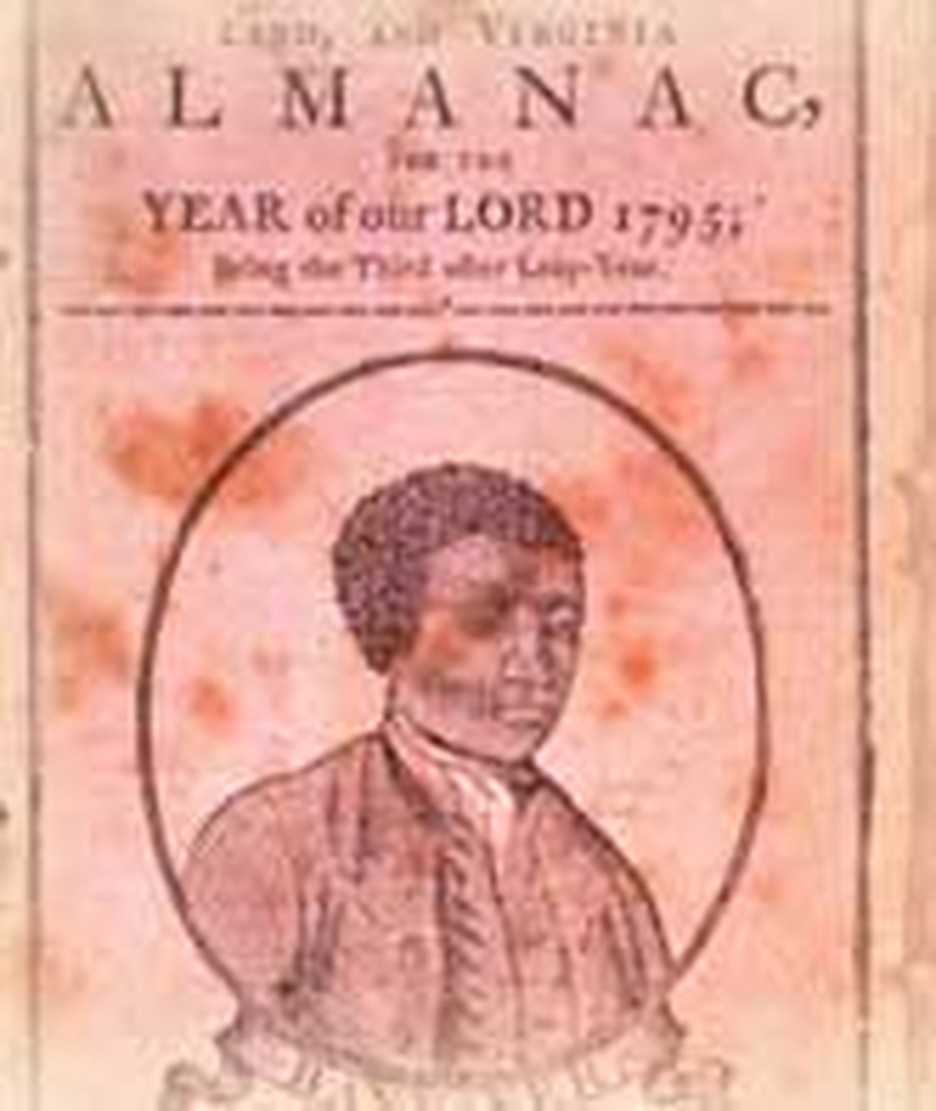
On this day, November 9, 1731, a boy was born on a farm near Baltimore, along the Patapsco river. The child had a disadvantage: he was born black in a society that held black slaves. However, because his mother was free, he also was free: slave mother, slave child; free mother, free child. He was named Benjamin. Benjamin Bannaky.
Benjamin's grandmother, Molly, had come from England to America as an indentured servant. After fulfilling her term of service, she bought the farm on which Benjamin was born. At the same time she bought two slaves to help her work it. Later she freed both and married one, Banna Ka. Their daughter, Mary, bought a slave named Robert, whom she also freed and then married. Benjamin was their son.
Molly taught Benjamin and his brothers and sisters to read, using the Bible as a textbook. Benjamin learned to play the flute and violin. When a Quaker school opened nearby, he attended. The schoolmaster changed the boy's last name from Bannaky to Banneker.
At fifteen, Benjamin took over operation of the family farm and devised a system of ditches and dams that watered it year around from natural springs. The Banneker's fine tobacco crops were the envy of their neighbors.
Benjamin proved to be a polymath. A polymath is a person who excels in many fields of endeavor. Taking apart a watch, he studied its workings and carved a wooden clock based on the principles he learned. It kept good time for forty years. Joseph Ellicott, an industrialist, asked Benjamin to build him a similar clock, which he did. The Ellicott brothers became Benjamin's close friends and loaned him books from which he taught himself astronomy and mathematics. He learned so well that he predicted an eclipse correctly when prominent astronomers and mathematicians got it wrong. In time, Benjamin became famous for the almanacs he issued between 1792 and 1802.
But Benjamin may be most famous for a contribution he made to the nation when he was sixty. He was helping the Ellicott brothers lay out Washington, D. C. as the nation's capital. The architect in charge of the city plans was Pierre L'Enfant. Because of his bad-temper, L'Enfant was dismissed from the post. He took his plans with him. Benjamin recreated them from memory.
Thomas Jefferson considered black people mentally inferior. To prove him wrong, Benjamin sent him a copy of his almanac. In the accompanying letter, he argued against slavery on the basis of his Christian beliefs: "...it is the indispensable duty of those, who maintain for themselves the rights of human nature, and who possess the obligations of Christianity, to extend their power and influence to the relief of every part of the human race, from whatever burden or oppression they may unjustly labor under..."
"...and it is under a sense of the most profound gratitude to the Supreme Ruler of the Universe, that I now confess to you, that I am not under that state of tyrannical thraldom [bondage], and inhuman captivity, to which too many of my brethren are doomed, but that I have abundantly tasted of the fruition of those blessings, which proceed from that free and unequalled liberty with which you are favored; and which, I hope, you will willingly allow you have mercifully received, from the immediate hand of that Being, from whom proceedeth every good and perfect Gift."
Jefferson replied politely, but did nothing to end the slave system.
Bibliography:
- Bedini, Silvio A. The Life of Benjamin Banneker [by] Silvio A. Bedini. New York: Scribner, 1971.
- Dobler, Lavinia and Toppin, Edgar A. Pioneers and Patriots. Garden City, New York: Doubleday Zenith Books, 1965.
- Various internet and encyclopedia articles.
Last updated June, 2007.


